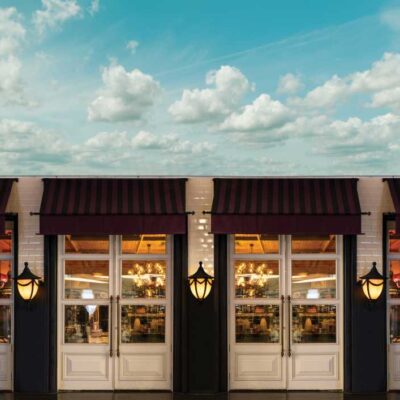Planning is the name of the game
Rain-related events cancellations are heartbreaking for businesses after the COVID recovery and contingency planning is a must, says NZEA. The New Zealand Events Association says the cancellation of multiple events […]
Rain-related events cancellations are heartbreaking for businesses after the COVID recovery and contingency planning is a must, says NZEA.
The New Zealand Events Association says the cancellation of multiple events at short notice is heartbreaking for organisers and concertgoers alike, but says it is a timely reminder of the necessity for emergency contingency plans. “Just when things seemed to be getting back to normal for the events industry, it started raining and hasn’t stopped,” says Elaine Linnell, NZEA’s general manager.
“It’s devastating for all our members as the cancellation of major events has a knock-on effect which is hitting hard. It also demonstrates the necessity for emergency plans – after all, this is New Zealand and the unexpected can occur at any time thanks to Mother Nature.”
Deciding on a cancellation is always difficult and takes into account multiple considerations including loss of revenue, disruption to travel plans and other arrangements for ticket holders, difficulty in communicating clearly with all stakeholders, including suppliers, and potential reputational damage (which can result if the event goes ahead in bad weather or is cancelled, and the weather relents).
But the one overriding concern is the safety of everyone concerned. “Cancellations are always a minefield and it’s upsetting for everyone,” Linnell says. “That’s why having a plan is essential, whether you’re organising Elton John, or running the local Jazz in the Park.”
The NZEA’s top tips when organising an event include:
Have a plan
Always plan for the possibility of cancellation or postponement. If the weather turns, you’ll be ready to communicate effectively with vendors, suppliers, ticketholders and even transport providers. Health and safety is paramount, and communicating plans early helps everyone understand what needs to happen. Working together is key; arrange an alternate date ahead of the planned fixture if possible, and include venues, talent, and suppliers in the planning for the second calendar entry.
Get insured
Loss of profits is among the biggest concerns with event cancellations or postponements. A lot of work goes into every event, and delaying or stopping the show is a huge waste of effort. An insurance policy provides some peace of mind, with several companies available to cover your event. Organise well in advance of your fixture.
Communication is key (from start, to finish, with everyone)
Well ahead of your event, be sure to include cancellation clauses in all vendor/supplier/talent contracts so everyone knows what to expect. If a cancellation is necessary, prompt and efficient communication across your supply chains is just as important as fast and efficient communication with your ticketholders. Update your website and social media platforms, send emails and/or text messages, and send push notifications on the event app (if applicable). Get everyone on board with a consistent message: your talent, suppliers and vendors will get the word out. Answer their questions and be specific. People want reasons for cancellation postponement, they want to know about refunds, and they want information about new dates, times and venues.
Provide clear reasons for cancellation or postponement
Before sending any messages, clarify why the event isn’t going ahead. Severe weather is a safety hazard; wind and flooding can compromise the venue, interrupt transport, and crowd control can become difficult or impossible. Explain ‘why’ concisely so everyone understands the necessity for action with safety as the top priority.
Reflect and assess
Regardless of whether the cancellation or postponement went well or not, take the opportunity to evaluate your response. Determine what went right and why with the same vigour as assessing what went wrong. Use it as a learning experience; we can’t prevent natural disasters or significant weather events, but we can change how we respond to them. Include suppliers and vendors in your assessment, and even consider reaching out to ticketholders with a follow-up survey. Your customers have views and expectations, understanding them is important to help create better customer experiences, even if the weather has ruined the fun.
“Planning ahead is the name of the game,” says Linnell. “Nobody wants to see an event cancelled, but we all want to get home safely and we all have to accept that we live in an unpredictable world. Bad things do happen, but it’s how we deal with them that determines our success.”






